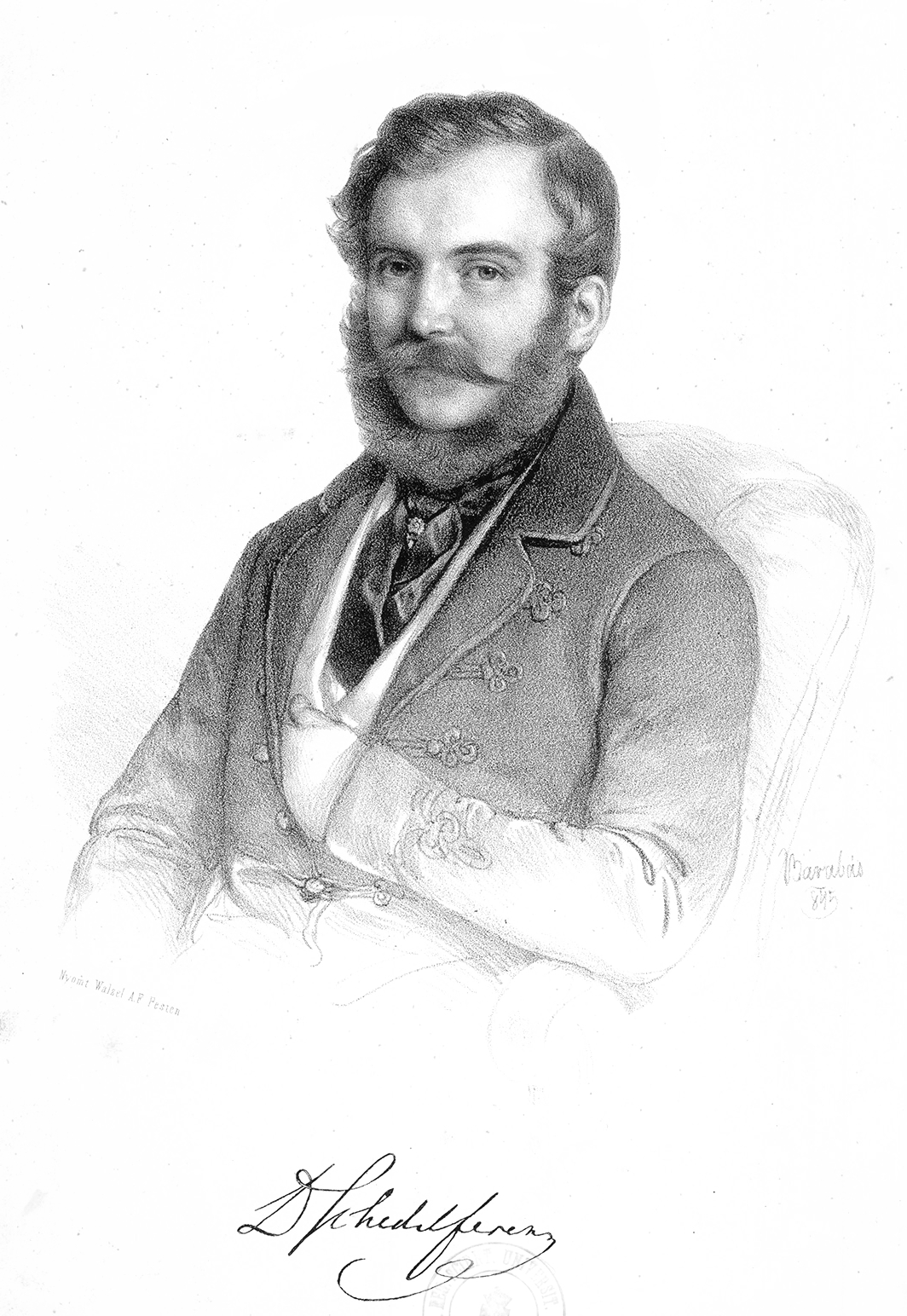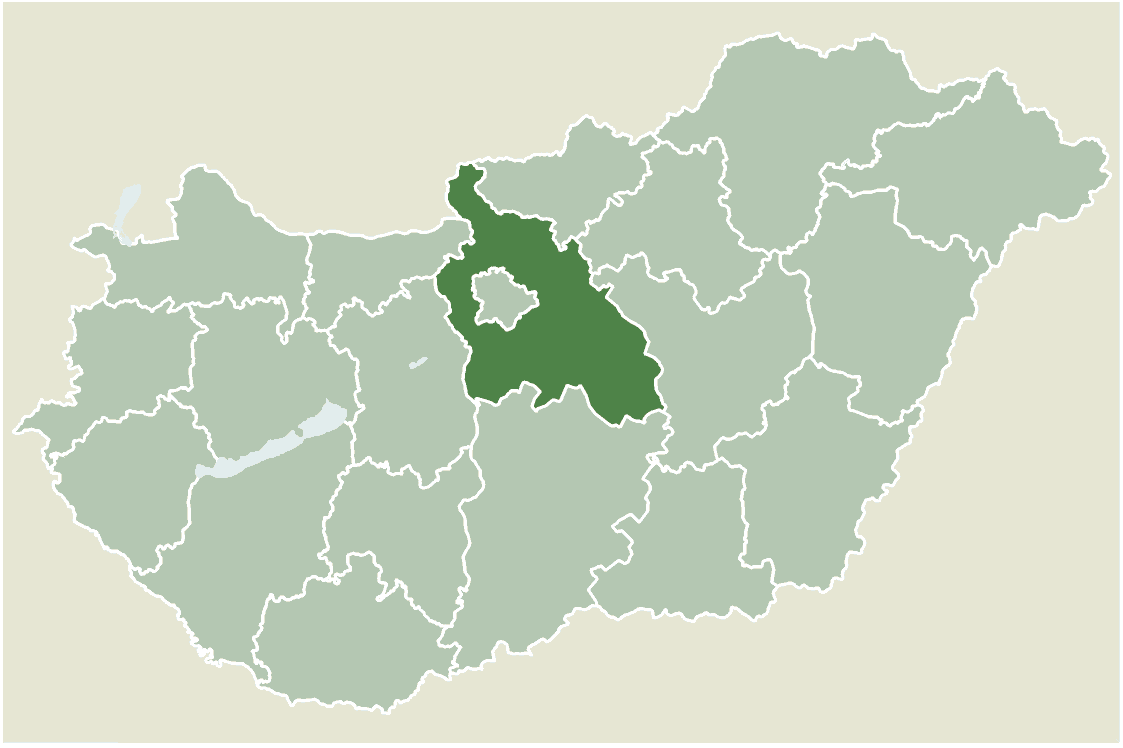|
Ferenc Toldy
Ferenc Toldy (born Franz Karl Joseph Schedel, August 10, 1805, in Buda - December 10, 1875, in Budapest) was a Hungarian literary critic. Biography As a small boy, he lived with his parents, Franz Schedel and Josepha Thalherr, in Buda. He was sent to school in Cegléd. He studied medicine and practised as a doctor in Pest, but his interest in literature absorbed his attention, and he published a handbook on Hungarian poetry in 1828. He travelled to Berlin, London, and Paris, returning in 1830. From 1833 to 1844 he was a professor of dietetics at Pest University, and in 1836 helped found the Kisfaludy Society The Kisfaludy Society (Hungarian: ''Kisfaludy Társaság'') was a literary society in Pest, founded in 1836 and named after Károly Kisfaludy, who had died in 1830. It held monthly meetings and was a major force in Hungarian literary life, givin .... He changed his name to Toldy in 1846. He had used it as a pseudonym from the beginning of his career. He had already join ... [...More Info...] [...Related Items...] OR: [Wikipedia] [Google] [Baidu] |
Buda
Buda (; german: Ofen, sh-Latn-Cyrl, separator=" / ", Budim, Будим, Czech and sk, Budín, tr, Budin) was the historic capital of the Kingdom of Hungary and since 1873 has been the western part of the Hungarian capital Budapest, on the west bank of the Danube. Buda comprises a third of Budapest's total territory and is mostly wooded. Landmarks include Buda Castle, the Citadella, and the president of Hungary's residence, Sándor Palace. Etymology According to a legend recorded in chronicles from the Middle Ages, the name "Buda" comes from the name of Bleda ( hu, Buda), brother of Hunnic ruler Attila. Demographics The Buda fortress and palace were built by King Béla IV of Hungary in 1247, and were the nucleus around which the town of Buda was built, which soon gained great importance, and became in 1361 the capital of Hungary. While Pest was mostly Hungarian in the 15th century, Buda had a German majority; however according to the Hungarian Royal Treasury ... [...More Info...] [...Related Items...] OR: [Wikipedia] [Google] [Baidu] |
Budapest
Budapest (, ; ) is the capital and most populous city of Hungary. It is the ninth-largest city in the European Union by population within city limits and the second-largest city on the Danube river; the city has an estimated population of 1,752,286 over a land area of about . Budapest, which is both a city and county, forms the centre of the Budapest metropolitan area, which has an area of and a population of 3,303,786; it is a primate city, constituting 33% of the population of Hungary. The history of Budapest began when an early Celtic settlement transformed into the Roman town of Aquincum, the capital of Lower Pannonia. The Hungarians arrived in the territory in the late 9th century, but the area was pillaged by the Mongols in 1241–42. Re-established Buda became one of the centres of Renaissance humanist culture by the 15th century. The Battle of Mohács, in 1526, was followed by nearly 150 years of Ottoman rule. After the reconquest of Buda in 1686, the ... [...More Info...] [...Related Items...] OR: [Wikipedia] [Google] [Baidu] |
Literary Critic
Literary criticism (or literary studies) is the study, evaluation, and interpretation of literature. Modern literary criticism is often influenced by literary theory, which is the philosophical discussion of literature's goals and methods. Though the two activities are closely related, literary critics are not always, and have not always been, theorists. Whether or not literary criticism should be considered a separate field of inquiry from literary theory is a matter of some controversy. For example, the ''Johns Hopkins Guide to Literary Theory and Criticism'' draws no distinction between literary theory and literary criticism, and almost always uses the terms together to describe the same concept. Some critics consider literary criticism a practical application of literary theory, because criticism always deals directly with particular literary works, while theory may be more general or abstract. Literary criticism is often published in essay or book form. Academic liter ... [...More Info...] [...Related Items...] OR: [Wikipedia] [Google] [Baidu] |
Cegléd
Cegléd (; german: Zieglet) is a city in Pest county, Hungary, approximately southeast of the Hungarian capital, Budapest. Name The name of the town is of disputed origin. The name may be derived from the word "szeglet" (meaning "corner") due to its being a junction point of several important routes, while it may also have been derived from a proper name, i. e. from the name of a man called "Cegléd". The most likely explanation derives the name from the noun "cigle" or "cegle", the old Hungarian name of a rivercoast willow. History Its area has been inhabited since the Copper Age. It was first mentioned in 1290 in a decree by Ladislaus IV of Hungary. The town prospered under the Árpád dynasty until the 13th century Mongol invasion of Hungary left it in ruins. It was reinhabitated later, and on May 8, 1364 Louis I of Hungary relieved the town from paying customs. The king gave the town to his queen, Elisabeth, who ceded it to the Clarissa sisters. During the 1514 György D ... [...More Info...] [...Related Items...] OR: [Wikipedia] [Google] [Baidu] |
Pest (city)
Pest () is the eastern, mostly flat part of Budapest, Hungary, comprising about two-thirds of the city's territory. It is separated from Buda and Óbuda, the western parts of Budapest, by the Danube River. Among its most notable sights are the Inner City, the Hungarian Parliament Building, Heroes' Square and Andrássy Avenue. In colloquial Hungarian, "Pest" is often used for the whole capital of Budapest. The three parts of Budapest (Pest, Buda, Óbuda) united in 1873. Etymology According to Ptolemy the settlement was called ''Pession'' in ancient times ( Contra-Aquincum). Alternatively, the name ''Pest'' may have come from a Slavic word meaning "furnace", "oven" (Bulgarian ; Serbian /''peć''; Croatian ''peć''), related to the word (meaning "cave"), probably with reference to a local cave where fire burned. The spelling ''Pesth'' was occasionally used in English, even as late as the early 20th century, although it is now considered archaic. History Pest was or ... [...More Info...] [...Related Items...] OR: [Wikipedia] [Google] [Baidu] |
Kisfaludy Society
The Kisfaludy Society (Hungarian: ''Kisfaludy Társaság'') was a literary society in Pest, founded in 1836 and named after Károly Kisfaludy, who had died in 1830. It held monthly meetings and was a major force in Hungarian literary life, giving prizes, funding the collection of folk songs, and sponsoring the publication of works like Imre Madách's ''The Tragedy of Man''. It dissolved in 1952. Founding members Directors * András Fáy (the first director, 1837-1841) * Ferenc Toldy (1841-1860, and from 1860 vice-chairman) * János Arany (1860-1867, with József Eötvös as president and Pál Gregus as secretary) * Zsigmond Kemény (1867-1876) * Móric Lukács (1876-1879) * Pál Gyulai Pál is a Hungarian masculine given name, the Hungarian version of Paul. It may refer to: * Pál Almásy (1818-1882), Hungarian lawyer and politician * Pál Bedák (born 1985), Hungarian boxer * Pál Benkő (1928–2019), Hungarian-American ch ... (1879-1899, with Zsolt Beöthy as secre ... [...More Info...] [...Related Items...] OR: [Wikipedia] [Google] [Baidu] |
Hungarian Literary Critics
Hungarian may refer to: * Hungary, a country in Central Europe * Kingdom of Hungary, state of Hungary, existing between 1000 and 1946 * Hungarians, ethnic groups in Hungary * Hungarian algorithm, a polynomial time algorithm for solving the assignment problem * Hungarian language Hungarian () is an Uralic language spoken in Hungary and parts of several neighbouring countries. It is the official language of Hungary and one of the 24 official languages of the European Union. Outside Hungary, it is also spoken by Hungarian ..., a Finno-Ugric language spoken in Hungary and all neighbouring countries * Hungarian notation, a naming convention in computer programming * Hungarian cuisine, the cuisine of Hungary and the Hungarians See also * * {{disambiguation Language and nationality disambiguation pages ... [...More Info...] [...Related Items...] OR: [Wikipedia] [Google] [Baidu] |
Hungarian Literary Historians
Hungarian may refer to: * Hungary, a country in Central Europe * Kingdom of Hungary, state of Hungary, existing between 1000 and 1946 * Hungarians, ethnic groups in Hungary * Hungarian algorithm, a polynomial time algorithm for solving the assignment problem * Hungarian language Hungarian () is an Uralic language spoken in Hungary and parts of several neighbouring countries. It is the official language of Hungary and one of the 24 official languages of the European Union. Outside Hungary, it is also spoken by Hungarian ..., a Finno-Ugric language spoken in Hungary and all neighbouring countries * Hungarian notation, a naming convention in computer programming * Hungarian cuisine, the cuisine of Hungary and the Hungarians See also * * {{disambiguation Language and nationality disambiguation pages ... [...More Info...] [...Related Items...] OR: [Wikipedia] [Google] [Baidu] |
People From Buda
A person ( : people) is a being that has certain capacities or attributes such as reason, morality, consciousness or self-consciousness, and being a part of a culturally established form of social relations such as kinship, ownership of property, or legal responsibility. The defining features of personhood and, consequently, what makes a person count as a person, differ widely among cultures and contexts. In addition to the question of personhood, of what makes a being count as a person to begin with, there are further questions about personal identity and self: both about what makes any particular person that particular person instead of another, and about what makes a person at one time the same person as they were or will be at another time despite any intervening changes. The plural form "people" is often used to refer to an entire nation or ethnic group (as in "a people"), and this was the original meaning of the word; it subsequently acquired its use as a plural form of ... [...More Info...] [...Related Items...] OR: [Wikipedia] [Google] [Baidu] |
1805 Births
Eighteen or 18 may refer to: * 18 (number), the natural number following 17 and preceding 19 * one of the years 18 BC, AD 18, 1918, 2018 Film, television and entertainment * ''18'' (film), a 1993 Taiwanese experimental film based on the short story ''God's Dice'' * ''Eighteen'' (film), a 2005 Canadian dramatic feature film * 18 (British Board of Film Classification), a film rating in the United Kingdom, also used in Ireland by the Irish Film Classification Office * 18 (''Dragon Ball''), a character in the ''Dragon Ball'' franchise * "Eighteen", a 2006 episode of the animated television series ''12 oz. Mouse'' Music Albums * ''18'' (Moby album), 2002 * ''18'' (Nana Kitade album), 2005 * '' 18...'', 2009 debut album by G.E.M. Songs * "18" (5 Seconds of Summer song), from their 2014 eponymous debut album * "18" (One Direction song), from their 2014 studio album ''Four'' * "18", by Anarbor from their 2013 studio album '' Burnout'' * "I'm Eighteen", by Alice Cooper commonly ... [...More Info...] [...Related Items...] OR: [Wikipedia] [Google] [Baidu] |






_1938.jpg)